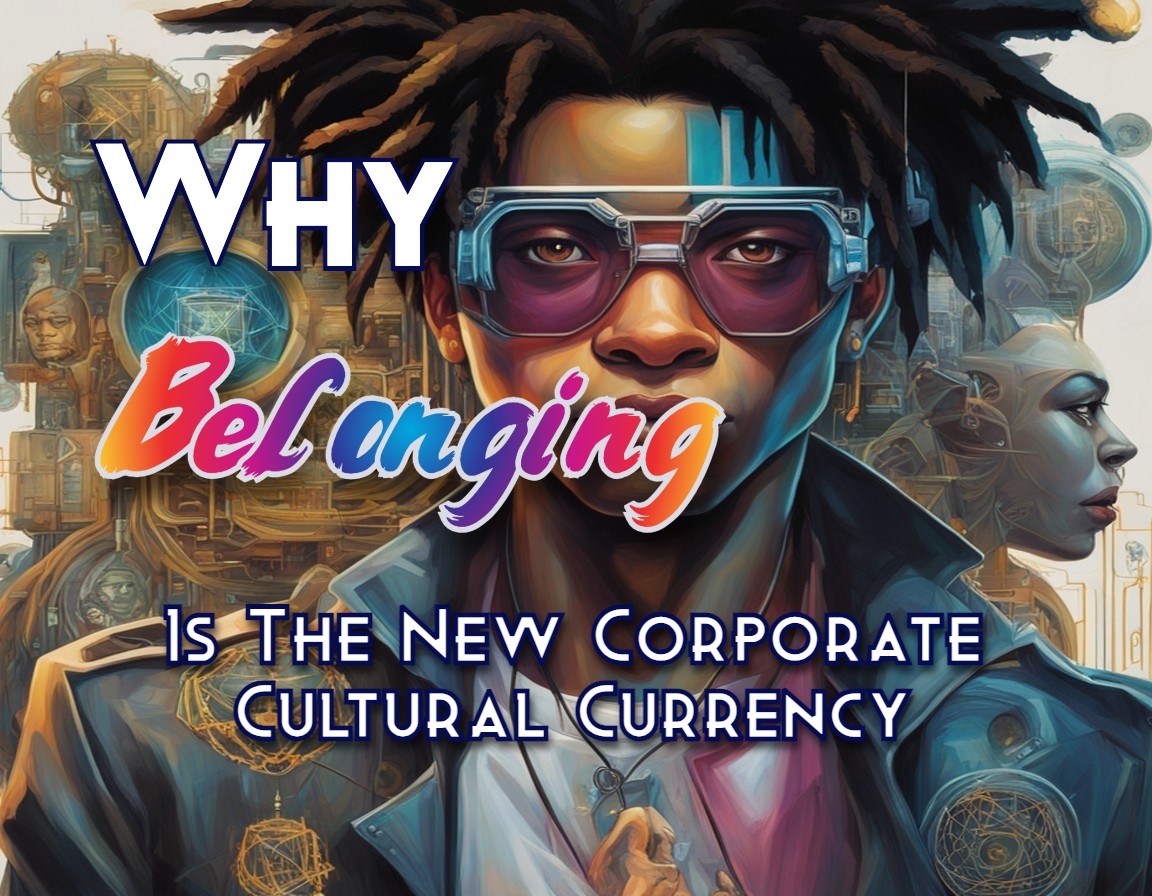The Changing Landscape of Corporate Culture
Corporate culture has always been a significant driver of business success. But ask yourself: Is your company’s culture adapting quickly enough to the new realities? The time to act is now.
The game has shifted with the rise of artificial intelligence (AI) and a new generation of workers entering the scene. As I write this, the oldest Gen-Zs are already in their late twenties. Today, it’s not enough to offer a high salary and benefits; companies must create a culture that resonates deeply with their employees’ core values. In particular, Gen-Z is leading the charge in demanding a workplace that prioritizes belonging, emotional intelligence, and human connection. The AI-driven changes are inevitable, and preparation is critical.
Are you ready for this shift, or will your business face a rude awakening?
The Psychology and Values of Gen-Z
Gen-Z: A Generation Craving Authenticity
Unlike previous generations, Gen-Z isn’t motivated solely by job stability or financial rewards. They want something deeper — authenticity. In a world where everything feels filtered and curated, this generation is looking for genuine connections, transparency, and purpose.
Does your company genuinely offer this or talk merely about it?
The next generation wants to work for companies that not only say the right things but also act with integrity of their purpose and values. Whether through social impact initiatives, inclusive policies, or open communication, authenticity is non-negotiable for Gen-Z.
Is your organization walking the talk?
Purpose-Driven Employment: More Than a Paycheck
For Gen-Z, work isn’t just about making money; it’s about making a difference.
Is your purpose clear enough to inspire them?
They seek purpose in their roles and expect employers to share their desire for positive societal impact. Companies that can’t articulate a clear and meaningful purpose will struggle to retain young talent. Gen-Z employees want to feel they’re contributing to something bigger than themselves — that their work matters beyond the bottom line.
What difference is your organization making?
Why AI Terrifies Many Workers
The Fear of Replacement in an AI-Driven World
As AI continues to permeate the workplace, many employees across generations are growing fearful of being replaced.
Have you addressed these concerns directly with your team?
This anxiety isn’t just about losing jobs — it’s about losing relevance. Workers are left wondering, “What will my role be in a future dominated by machines?” The uncertainty about how AI will impact their professional lives has many people on edge, particularly those in roles perceived to be easily automated.
How are you reassuring your employees that their human skills remain invaluable?
Keeping an Eye Out for Something Better
With this fear looming, employees are always looking for better opportunities.
Are you offering an environment where people feel truly valued? They’re looking for environments where their skills will be valued and where they’ll feel indispensable, not just to the task but to the culture. If workers feel disposable, their loyalty diminishes, making retention increasingly challenging for companies that fail to address these concerns.
What steps is your organization taking to make your people feel indispensable?
The Importance of Emotional Intelligence in the Workplace
What Is Emotional Intelligence (EQ)?
Emotional Intelligence (EQ) refers to recognizing, understanding, and managing emotions in oneself and others.
How well is your leadership team doing this?
EQ has become a crucial skill in the corporate world, especially in leadership positions. Even though technology can handle many tasks, human leaders masterfully manage emotions. Emotional intelligence fosters better communication, teamwork, and decision-making — vital to creating a thriving workplace. The importance of this skill cannot be overstated.
Are your leaders equipped with these essential skills?
How Leaders Can Harness EQ for Organizational Success
Self-Awareness: The Key to Emotional Intelligence
At the core of emotional intelligence is self-awareness. Leaders who understand their emotions can better manage them and guide their teams through complex emotional landscapes.
How self-aware are your leaders?
Self-awareness also promotes authenticity, helping leaders build trust and loyalty within their teams.
Empathy: The Bridge to Genuine Human Connection
Empathy is the cornerstone of building a culture of belonging.
Are your leaders genuinely connecting with their teams?
When leaders and employees alike can empathize with each other, they create an environment where individuals feel valued and understood. This cultural environment boosts morale and drives innovation, collaboration, and engagement.
Is empathy at the heart of your leadership approach?
Building a Culture of Belonging
What Does “Belonging” Really Mean?
Belonging isn’t just about fitting in! Belonging is about feeling valued for your unique contributions.
Are your employees thriving because they feel they belong?
In a corporate setting, belonging means employees are accepted and celebrated for their individuality. It’s a shift from seeing employees as cogs in a machine to valuing them as people with distinct talents, perspectives, and needs.
Is your organization ready to make that shift?
The Ripple Effect of Belonging in Corporate Environments
How Belonging Enhances Employee Loyalty
When employees feel like they belong, they’re more likely to stay.
Are you building a loyal workforce by creating true belonging?
Loyalty is built on the foundation of emotional connection and shared values. Companies that foster a sense of belonging reduce turnover rates, saving money and improving the continuity of expertise and culture.
Belonging and Customer Relationships: A Win-Win
A culture of belonging doesn’t stop with employees — it also extends to customers.
Are your customers feeling that same sense of belonging?
When companies demonstrate that they value human connection internally, it resonates externally. Customers today crave genuine interactions and are more likely to stay loyal to companies that prioritize emotional intelligence and inclusivity.
How are you connecting with your customers on a deeper level?
Why Companies That Ignore These Elements Are Doomed to Fail
The Commoditization of Business in the AI Era
In the AI era, businesses focusing solely on products and services are bound to be commoditized.
Is your company on the brink of commoditization?
As machines take over more operational tasks, the human aspect becomes the differentiator. Companies that ignore the importance of emotional intelligence and belonging will find themselves stuck in a race to the bottom, competing only on price and efficiency.
What steps are you taking to avoid this trap?
A Human-Centric Approach Is the Only Competitive Advantage
The real competitive advantage lies in being human-centric.
Are you investing enough in your people?
Companies that invest in emotional intelligence, self-awareness, and a culture of belonging will stand head and shoulders above their competition. The human touch becomes the most valuable asset in a world where AI can replicate many technical skills.
Are you prioritizing the human element in your business strategy?
The Future of Corporate Success Depends on Belonging
The future of work is human!
As AI continues to transform industries, companies must adapt by prioritizing emotional intelligence, self-awareness, and cultures of belonging.
Are you ready for the future of work?
Gen-Z, with their demand for authenticity and purpose, sets the tone for what employees want in the modern workplace. Businesses that embrace these values will survive and thrive in the AI era.
Is your company ready to thrive?
If so, Reach Out!
Let’s talk about making your organization the one Gen-Z leaders and customers flood to.




